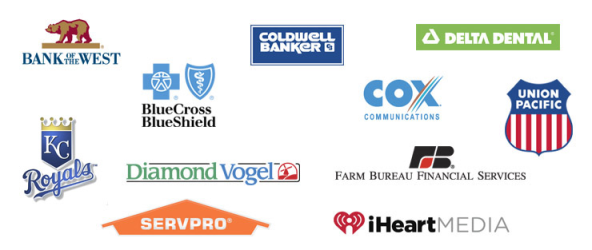By Jeff Beals
The philosopher Ralph Waldo Emerson once said, “Trust men and they will be true to you; treat them greatly, and they will show themselves great.”
The novelist Ernest Hemingway once said, “The best way to find out if you can trust somebody is to trust them.”
Trust. It can be difficult to achieve, but it is essential for long-term success in today’s fast-paced, ultra-competitive world.
Trust facilitates decision making. Trust makes your work easier and more fulfilling. When trust exists, deal-making is simply more fun, because participants endure far less stress and tension. In his 2008 book Speed of Trust, Stephen M.R. Covey shows us that even the most complicated business transactions can move quickly and freely if trust is present. Huge purchases are still sometimes made verbally and sealed with a handshake when both parties trust each other without reservation.
Legendary football coach Hayden Fry is best known for his work at the University of Iowa, where he led the Hawkeyes to three Big 10 Championships. He retired in 1998 after amassing 232 wins and was inducted into the College Football Hall of Fame in 2003. When he coached at Southern Methodist University back in the mid-1960s, Fry recruited Jerry LeVias, the first African-American player to receive a scholarship in the history of the Southwest Conference. LeVias had other scholarship offers, so it was quite a coup to attract him to a school that had such an entrenched culture of racial exclusion.
So how did Hayden Fry convince Jerry LeVias to join a school in a conference that never before had signed black players? The answer is simple: Trust.
“I never even mentioned football to Jerry,” Fry said. “We talked about his educational objectives. What he would become after graduation. We talked about personal things. It was obvious he was a great football player, so there was no need to talk about football.”
Fry signed LeVias because he built a trusting relationship with him.
When trust exists, you don’t have to “sell” anything; you don’t have to talk people into doing things. When you are a trusted provider who keeps the best interests of others in mind, you get the benefit of the doubt. You get opportunities that other people never know about.
In order to build trust, you must climb the “relationship depth chart.” At the bottom of the chart, is rapport, which leads to the second level-a relationship. After that, trust blossoms, ultimately leading to an agreement, a deal or an opportunity. With each person you meet, start at the bottom of the relationship depth chart and work your way up.
When Hayden Fry was recruiting players for his football team, he climbed the relationship depth chart by listening to prospective players, empathizing with them and getting to know the important people in their lives.
“I instructed my coaching staff that if the young man they were recruiting had a dog named Spot, then you better get to know Spot,” Fry said. “In other words, you needed to know the family, their background, their goals in life, religious beliefs.”
The relationship depth chart is sequential and therefore must be followed in exact order. First, seek to establish rapport. This simply means that after acquaintance is made, mutual affection exists between two people-I like you, and you like me. We have found some commonality and our personalities jibe. Once rapport is in place, you can proceed to a relationship, which is a deeper commonality that implies a longer-term friendship, mutual respect, empathy and loyalty. When two people have a healthy interpersonal relationship between them, they tend to enjoy reciprocating-that is, giving each other items of value and doing nice deeds for one another.
Once the relationship is firmly in place, trust springs forth naturally. The stronger that trust, and the longer it has been in place, the more likely the two parties-buyer and seller, convincer and convincee, recruiter and recruit – can come to a deal. Strong levels of trust lead to enduring professional relationships, which can be almost impossible for an outsider to break.
Constantly climb the relationship depth chart with everyone you encounter. Wherever you are with any given person at any given time on the depth chart, the focus is only on advancing to the next highest rung. Your goal is to move every prospect to the top of the chart, but focus on one step at a time. In other words, you’re unlikely to have trust if you skip the relationship part. You’re unlikely to sign a deal when you haven’t passed the rapport stage.
Trust is a two-way street. Not only does it make your work easier, it frankly makes it worthwhile. Put a premium on people around you. Elite professionals are in business to serve others. Ordinary ones serve themselves.
You are welcome to forward this article (with author citation) to anyone else who might benefit from it.
Jeff Beals is an award-winning author, who helps professionals do more business and have a greater impact on the world through effective sales, marketing and personal branding techniques. As a professional speaker, he delivers energetic and humorous keynote speeches and workshops to audiences worldwide. You can learn more and follow his “Beals Motivation Blog” at www.JeffBeals.com.








